Pregnancy Calendar: 32 Weeks Pregnant
How big is baby? Baby continues to add fat and weight, coming in at about 3.75 pounds (1.7 kg) and measuring nearly 17 inches (42 cm) from head to toe tip! He or she is about the size of a jicama.
What’s new this week? You may have to schedule your next doctor visit a lot sooner than expected. Prenatal care increases once you reach 32 weeks of pregnancy.
What’s next? Postpartum depression has been making a lot of headlines, and for good reason. It is real, and it is serious. Make sure you know the signs.
Baby is packing on the pounds preparing for birth, which means you will be gaining about 8 to 10 more pounds before the end of your pregnancy. Now is the time to ask your medical care team any questions you have about labor and delivery, as well as learn the signs and symptoms of postpartum depression.
What’s happening with my baby?
Baby now has fingernails, toenails and a head of hair (more or less depending on your baby). He or she will gain half of their birth weight over the next seven weeks. This allows the skin to become soft, smooth and nearly free of wrinkles as fat continues to form in preparation for birth.
How big is my belly?
The uterus has likely expanded to be about 5 inches (12 cm) above the bellybutton. You can expect to gain about a pound a week from here on out. But don’t worry, at least half of that is going straight to your little one.
Prenatal Care Increases
At 32 weeks of pregnancy, most medical care professionals will insist on seeing mothers-to-be on a bi-weekly basis rather than once a month. This will only continue until about week 36 of pregnancy, when your doctor will want to see you once a week.
This increased time with your medical care team gives you the opportunity to ask any questions you may have about labor and delivery. The goal is to be comfortable with your team and your birthing plan. However, should events not go according to plan, your comfort level with your medical care team can dictate how comfortable you are making decisions under pressure. Don’t be nervous or embarrassed to ask questions. Your care providers have heard just about everything before, and their only goal is to deliver a healthy baby and keep mom (you!) happy and healthy.
Postpartum Depression
From Brooke Shields to Chrissy Teigen, postpartum depression has been in the news frequently for the past decade or so. This is a good thing; it happens to so many mothers, yet society has made it seem like a dark or dirty condition to be ashamed of. Hear this: IT IS NOT DARK OR DIRTY.
While many mothers experience mood swings from the surge of hormones for a few days or weeks following delivery (what is known as “baby blues”), postpartum depression is a more severe, long-lasting condition. This condition is not a weakness or flaw. It is a physiological complication of giving birth.
Your risk of postpartum depression may increase if you have any of the following:
- History of depression, including postpartum depression following a previous pregnancy
- Bipolar disorder
- Family history of depression
- Pregnancy complications
- Difficulty breastfeeding
- Relationship, financial or familial issues
- Pregnancy was unplanned or unwanted
It is important to know the signs of postpartum depression, which are more intense and last longer than “baby blues.” It is ideal to treat the condition before it keeps you from properly caring for your baby. The following symptoms may occur a few weeks after giving birth or up to six months later:
- Severe mood swings
- Excessive crying
- Unwillingness or difficulty bonding with baby
- Loss of appetite
- Changes in your sleep pattern (not caused by feedings)
- Severe fatigue
- Loss of interest in activities you used to enjoy
- Feelings of worthlessness or inadequacy
- Inability to make decisions
- Panic attacks
- Thoughts of harming your baby
- Suicidal thoughts
If you experience any of these symptoms for longer than two weeks, don’t hesitate to make an appointment with your healthcare provider. If you feel you or your baby are in danger, seek help from a friend or family member and call your doctor immediately.
While you will likely need professional help to overcome postpartum depression, you can help speed recovery by not setting unrealistic expectations of motherhood, staying active and eating a healthy diet. Don’t allow yourself to become isolated, especially during your maternity leave, and always ask for help when you need it. If you are diagnosed with postpartum depression, your doctor may recommend medication or therapy.
Placental Abruption
About 1 percent of pregnant women will experience a placental abruption, or the separation of the placenta from the uterine lining. While the medical community is not clear on what causes the condition, certain risk factors are thought to contribute to it, including, smoking, cocaine use during pregnancy, mother’s age over 35, preeclampsia, carrying multiples and trauma to the abdomen.
If you experience vaginal bleeding during the third trimester, rapid contractions or abdominal pain, call your doctor. An ultrasound and fetal monitoring will be used to diagnose the condition.
If there is only a partial separation and your baby has not yet reached maturity, your physician will likely prescribe bedrest and any other necessary emergency treatments. If there is a complete separation or your baby is far enough along that he or she could survive outside the womb, your physician will likely want to deliver your baby.
If you have any questions or concerns concerning placental abruption, don’t hesitate to ask your medical care team.
Tip: If you have not already, plan a hospital tour with your partner. At the very least, plan out your route to the hospital, know where to park and where to check in.

